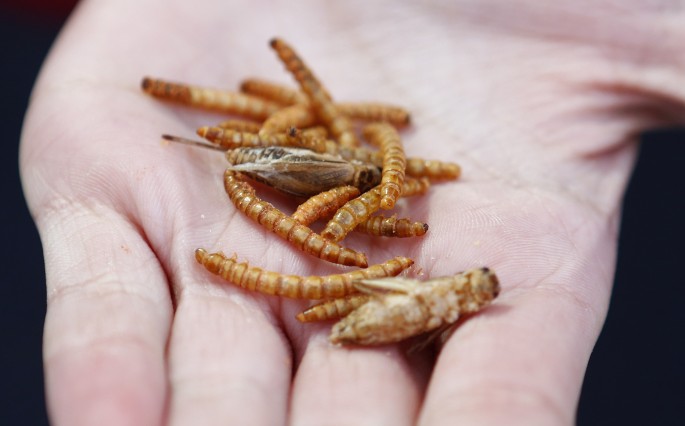Eating insects could be the answer to the global problem of food and resource scarcity, a United Nations official said.
Paul Vantomme, senior forestry officer of UN's Food and Agriculture Organization (FAO), said that insect cuisine might be the solution to the food crisis, which poses an unavoidable threat to human development.
Eating edible insects not affected by toxins from pesticide and bacteria also present several advantages, said UN official Vantomme, who is currently paying a visit to Huazhong Agricultural University in Wuhan.
"Edible insects have many advantages in that they grow quickly, emit less pollution and are high in nutrients," the UN official said.
Many insects from around the world have high-quality protein, vitamins and amino acids needed by the human body, he added.
As they can be grown in organic waste, insects propagated for food can also help alleviate air and water pollution.
Insects also require fewer resources to produce enough nutrients in them. In a report released by the FAO last year, it was said that crickets require six times less feed than cattle, four times less than sheep, and half as much as pigs and chickens to generate the same amount of protein.
Yu Ziniu, a microbiology professor at Huazhong Agricultural University, meanwhile, agreed that insects have the potential to become a main part of the human diet.
The FAO report predicts that the problem of diminishing land and water resources will be acute by 2030, as by then more than 9 billion people around the world will be requiring food, in addition to the billions of animals raised for food and as pets.
The report proposes that eating bugs may be one of the many ways to solve the crisis, as insects currently augment the diets of about 2 billion people and that they have always been part of human diets.
Further, the report said that over 1,900 edible insect species are eaten around the world, with the most common being beetles, caterpillars, bees, wasps, ants, grasshoppers, locusts and crickets.




























